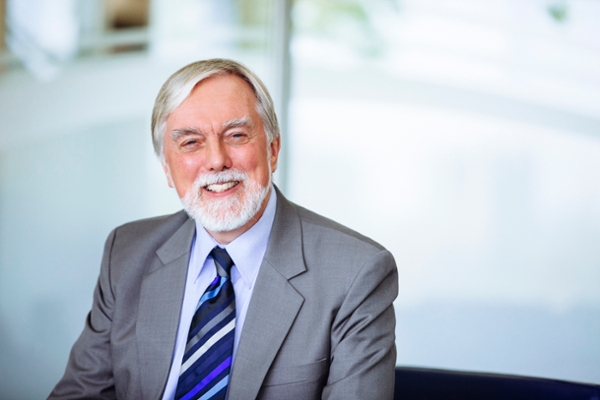
New director appointed to science and innovation policy centre
Dr. Jeremy Rayner (Ph.D.), an expert in global forest governance and environmental policy, has been selected to serve as the new director for the Johnson Shoyama Centre for the Study of Science and Innovation Policy (CSIP), beginning on July 1, 2019 for a two-year term.
By Erica Schindel, Marketing and Communications SpecialistRayner is currently a professor in the Johnson Shoyama Graduate School of Public Policy’s (JSGS) University of Saskatchewan campus, where his research focuses on governance arrangements for complex policy problems, especially at the intersection of forests, climate change and energy. From 2009-2011, Rayner was the chair of the Global Forest Expert Panel on the International Forest Regime, and was responsible for editing and contributing to the panel’s assessment report, and co-authoring and presenting the panel’s policy brief to the ninth session of the United Nations Forum on Forests.
“The school would like to thank Dr. Peter Phillips (Ph.D.), inaugural CSIP director, for his commitment and vision over the past few years,” says Doug Moen, JSGS executive director. “Under Peter’s guidance, CSIP has fostered collaborative research projects that have the potential to improve our province and country’s economic prosperity and quality of life. We look forward to working with Jeremy as he continues with this important work.”
“Over the past two years, the centre has solidified its partnerships with the Global Institute for Food Security and the Sylvia Fedoruk Canadian Centre for Nuclear Innovation, and has contributed to new strategic grants in bioscience and energy,” says Phillips. “The Canada First Research Excellence Fund in Plant Phenotyping and Imaging Research Centre and the CANDU Owners Group Inc. project are just two examples where CSIP researchers are collaborating on digital agriculture research, and on addressing public concerns as it relates to low dose radiation exposure.”
In addition to CSIP’s partnerships and research, the centre also launched two highly successful lecture series—Nuclear Insights and Women in Science—that have brought together academics, public servants and the greater public on issues ranging from nuclear medicine to encouraging women in STEM fields.
“CSIP is a growing and expanding research centre,” says Rayner. “I’m looking forward to working with our partners, advisory board and researchers to explore new opportunities over the coming two years.”
Established in 2017, CSIP’s mission is to increase understanding about the policy and governance dimensions of science and innovation policy. With expertise in strategic assessment, societal engagement and support for decision-making, CSIP’s efforts have focused on so-called “wicked problems” related to bioscience and food policy, digital governance and policy analytics, energy policy, and health innovation policy.
Phillips will be going on sabbatical starting this July. He will spend a term as a visiting scholar in the Hoffmann Centre on Food Security at the Royal Institute of International Affairs in London, and as visiting professor in the Faculty of Transdisciplinary Innovation at the University of Technology Sydney.
-30-
For more information, contact:
Erica Schindel, Communications and Marketing Specialist
Johnson Shoyama Graduate School of Public Policy
University of Saskatchewan campus
306-966-2663 | erica.schindel@usask.ca

